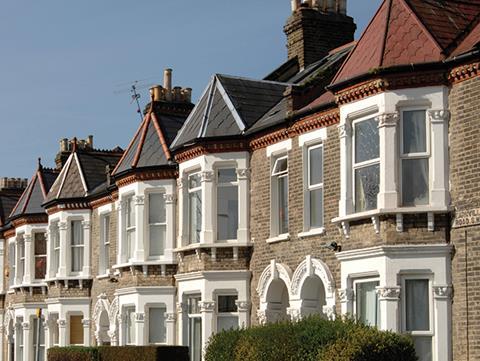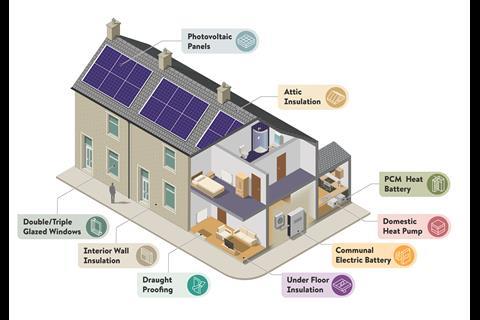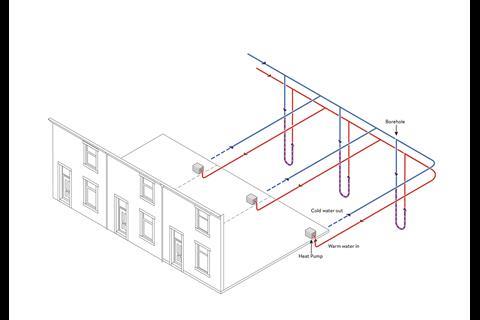An award-winning initiative aims to decarbonise up to eight million terraced homes in the UK through a community-led energy model that uses heat pump networks and microgrids

Net Zero Terraced Streets, a collaborative approach to deliver low-carbon domestic heating, received the Energy Innovation Award at the end of 2024.
The initiative – a joint venture between Buro Happold, Electricity North West, Centre for Energy Equality and RV Energy – could see millions of terraced homes come together in a bid to tackle climate change.
Net Zero Terraced Streets secured funding under Ofgem’s Strategic Innovation Fund (SIF) to help deliver a UK-specific solution that could be used to decarbonise up to eight million terraced homes.
The grant is being used to address the non-technical barriers to creating a commercial, standardised, replicable, and scalable model for energy communities across the UK.
“By looking at how we can use a smart energy approach – we’ve developed a flexible, community-led solution.”
Under UK government plans to ban gas boilers, terraced home residents face being left stranded and could be forced to switch to electric boilers, increasing energy bills and the demand on the electricity network.
Phil Proctor, technical director at Buro Happold, said: “Many terraced houses can be incredibly challenging to decarbonise due to both fabric and space constraints. Replacing a gas boiler with an electric boiler sounds like a simple fix. In reality, this means a significant additional demand for electricity on the local network, and based on efficiencies, they are four times more expensive to run than a ground source heat pump.
“By looking at how we can use a smart energy approach – we’ve developed a flexible, community-led solution that combines an ambient loop system for heat pumps with community energy and smart energy management via a virtual microgrid – meaning we can decarbonise whole communities. The solution unlocks stranded communities in terraced streets, yet can be applied anywhere.”
The project started with funding from the Community Renewable Fund, which commissioned an initial study on decarbonising an area in Rossendale, Lancashire. The feasibility assessment identified several scenarios and solutions, including the ambient loop approach for heat pumps. An ambient loop is a type of heat network that uses water pumped around at lower temperatures to provide heating and cooling instead of traditional high-temperature community heating models. These are considered to enhance district heat networks as an efficient and sustainable solution.
To date, the project has received funding through two stages of the SIF, which further helped develop the solution. Proctor added: “We are focused on introducing four modes of flexibility into the smart system: optimising bills, voltage management, thermal load, and national balancing. These modes are important in increasing the penetration of renewable energy and managing thermal network constraints.”
- Optimising bills: The first mode focuses on optimising bills by using low-cost community energy as the primary source, reducing overall energy costs for residents.
- Voltage management: The second mode addresses voltage management, aiming to increase solar energy integration into the network by overcoming voltage issues in the area.
- Thermal load: The third mode involves managing thermal load to increase the system’s capacity to handle more heat pumps and other thermal loads.
- National balancing: The fourth mode leverages price signals and generation timing to optimise energy use.
To ensure that the solution can be effective in multiple environments, Buro Happold has been working alongside a team in Bridgend from the Heat Pump Ready project to cross-check the model in a different territory with similar and different characteristics.
The team are working on further maturing the system, which will see the creation of a test rig later this year. The smart system components will then be introduced into homes.


















2 Readers' comments